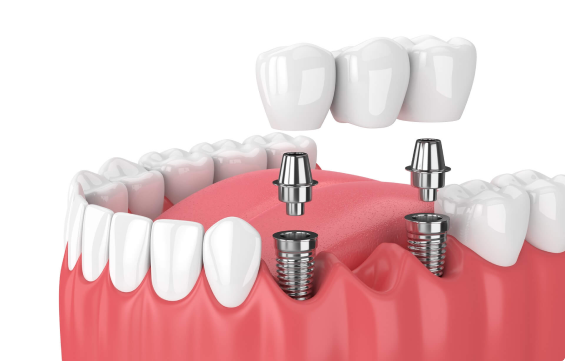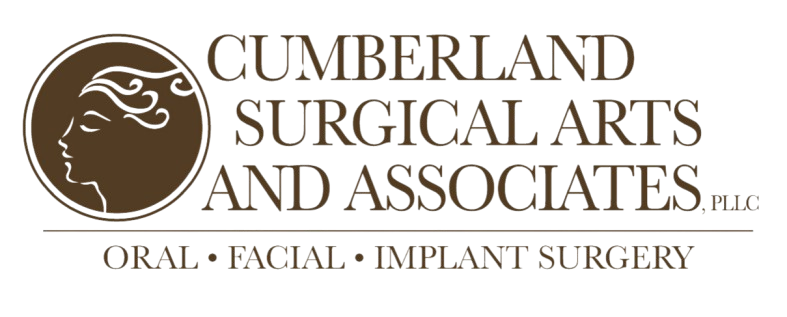Dental implants are artificial tooth roots that provide a stable foundation for replacement teeth. They consist of three main components:
- Implant post: A small titanium screw that is surgically placed into the jawbone. Titanium is chosen for its biocompatibility, meaning it integrates well with bone tissue.
- Abutment: A connector piece that attaches to the implant post and protrudes above the gum line. It serves as a link between the implant and the replacement tooth or crown.
- Crown: The visible part of the implant, which is custom made to match the color and shape of your natural teeth.

Benefits of Dental Implants
Dental implants have numerous advantages over traditional dentures or bridges, including:
- Durability: With proper care, dental implants can last a lifetime. They are highly resistant to decay and damage.
- Aesthetic appeal: Implants closely mimic the look and feel of natural teeth, enhancing your smile without compromising on aesthetics.
- Bone preservation: Implants stimulate the jawbone, which helps to prevent bone loss and maintain facial structure. This is in contrast to dentures, which can lead to bone resorption over time.
- Improved functionality: Implants provide a stable and secure fit, allowing you to eat, speak, and smile with confidence. They do not shift or slip like removable dentures.
- Comfort: Unlike dentures, implants do not require adhesives or special cleaning solutions. They become a permanent part of your mouth, reducing the inconvenience associated with removable prosthetics. Contact us to learn more.
The Dental Implant Procedure
The process of getting dental implants typically involves several stages, which may vary depending on individual needs. Here’s a step-by-step overview:
Initial Consultation and Evaluation
Your journey begins with a comprehensive evaluation at Cumberland Surgical Arts and Associates. During this consultation, our team will:
- Review your medical history: We will assess your overall health and any existing dental issues.
- Examine your oral health: This includes evaluating your gums, teeth, and bone structure through a physical examination and advanced imaging techniques like X-rays or CT scans.
- Discuss treatment options: We will outline the various implant options and create a personalized treatment plan tailored to your needs.
Presurgical Preparations
Before the implant surgery, we may need to address any preexisting conditions, such as gum disease or bone deficiencies. In some cases, bone grafting or sinus lifting procedures may be required to ensure there is sufficient bone density for the implant.
Implant Placement
The implant placement procedure is typically performed under local anesthesia to ensure comfort. During this stage:
- Surgical incision: We make a small incision in the gum tissue to access the jawbone.
- Implant insertion: The titanium implant post is carefully inserted into the bone.
- Gum closure: The gum tissue is sutured back in place, covering the implant.

Osseointegration
After the implant is placed, a healing period of several months is required for osseointegration. During this time, the implant is fused with the surrounding bone tissue as the latter heals. This process ensures a strong and stable foundation for the replacement tooth.
Abutment Placement
Once osseointegration is complete, we will attach the abutment to the implant. This requires a minor surgical procedure where a small incision is made to expose the implant, and the abutment is secured in place.
Crown Fabrication and Placement
Finally, a custom crown is created to match the shape, size, and color of your natural teeth. The crown is then attached to the abutment, completing the restoration process.
Postoperative Care and Maintenance
Proper care and maintenance are crucial to ensuring the longevity of your dental implants. Here are some key guidelines:
- Oral hygiene: Brush and floss your teeth regularly, paying special attention to the area around the implant. Use a soft-bristled toothbrush and nonabrasive toothpaste to avoid damaging the implant or surrounding tissues.
- Regular dental checkups: Schedule routine visits to Cumberland Surgical Arts and Associates for professional cleanings and examinations. We will monitor the health of your implants and surrounding tissues to detect any potential issues early.
- Healthy lifestyle: Avoid smoking and excessive alcohol consumption, as these habits can negatively impact oral health and implant success. Maintain a balanced diet rich in vitamins and minerals to support overall health and healing.
- Avoid hard foods: While dental implants are durable, it’s wise to avoid chewing on very hard foods or objects that could potentially damage the implant or crown.
Who Is a Candidate for Dental Implants?
Dental implants are suitable for many individuals, but certain criteria must be met to ensure successful outcomes:
Good Oral Health
Candidates should have healthy gums and sufficient bone density to support the implant.
Commitment to Oral Hygiene
Maintaining excellent oral hygiene is crucial for the long-term success of dental implants.
Nonsmoking Status
Smokers may face a higher risk of implant failure due to impaired healing. Quitting smoking can improve outcomes.
Medical Conditions
Certain medical conditions, such as uncontrolled diabetes or osteoporosis, may affect implant success. It’s important to discuss your health history with our team to determine suitability.
Conclusion
Dental implants represent a significant advancement in restorative dentistry, offering a durable, aesthetically pleasing, and functional solution for missing teeth. At Cumberland Surgical Arts and Associates, PLLC, we are dedicated to providing personalized care and ensuring that each patient receives the best possible outcome.
If you’re considering dental implants or have any questions about the procedure, we invite you to schedule a consultation with our experienced team. We are here to help you achieve a confident and complete smile that enhances your quality of life.
Ready to enhance your smile with expert care? At Cumberland Surgical Arts and Associates, we offer top-notch oral surgery services at three convenient locations. Visit our Rudolphtown office at 2285 Rudolphtown Rd Suite 200, Clarksville, TN 37043;, or our Parkway office at 1275 Parkway Pl, Clarksville, TN 37042;, or our Pleasant View office at 2524 TN-49E, Pleasant View, TN 37146. Call us at (931) 552-3292 or send a fax at 931-552-3243 to schedule your consultation and take the first step toward a healthier, more confident you!
Intraoral Scanner
Oral Lesion
Pre-Prosthetic Surgery
Frenectomy
Jaw Bone Loss and Deterioration
Jaw Bone Health
After Implant Placement
Missing All Upper or Lower Teeth
Overview of Implant Placement
Replacing Missing Teeth
Surgical Extraction of Teeth
Socket Preservation
Nerve Repositioning
Ridge Augmentation
Sinus Lift
About Bone Grafting
3D Imaging
Anesthesia
Tori Removal
All on 4
Wisdom Teeth Removal
Tooth Extractions
Bar Attachment Dentures
Bone Grafting
Locations
- MON - FRI8:00 am - 4:30 pm
- SAT - SUNClosed
- MON - TUE8:00 am - 4:30 pm
- WEDClosed
- THU8:00 am - 4:30 pm
- FRI - SUNClosed
- MON - TUEClosed
- WED8:00 am - 2:00 pm
- THU - SUNClosed
